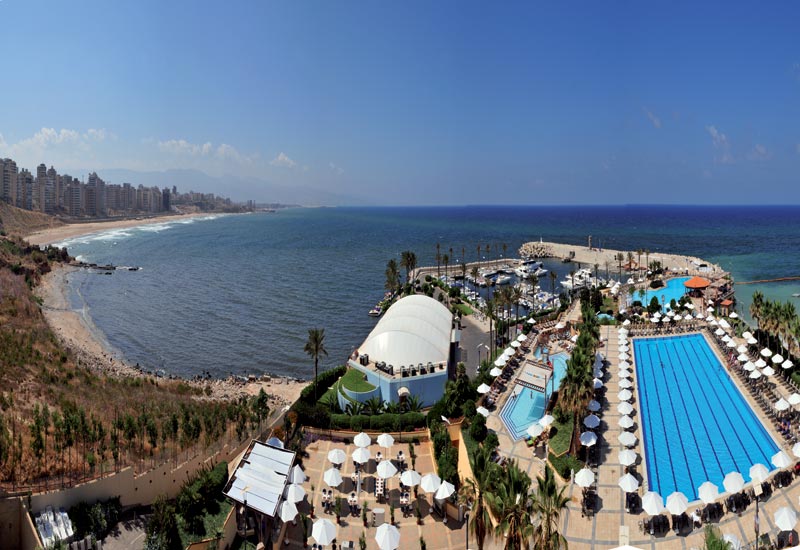Staffing Woes
The country’s instability has taken its toll on the hotel industry, with staffing one of the hardest-hit facets of business.
“We have to replace the workforce that left Lebanon during the last three years of political crisis and retrain the entire team to match up to the standards expected from a five-star hotel,” says Chatel.
Naaman agrees: “The most important factor that hinders development is manpower,” he says.
“It is very difficult to find professionals at this time; during the past few years, most have been expatriates from other countries.”

Advertisement
Expatriates and locals alike left Lebanon in droves between 2006 and 2007 and the industry is now struggling to build itself up with only a skeleton staff.
“The comeback of Lebanon has been so quick, that we are trying to keep up with the pace of this growth with our workforce,” says Chatel.
“We expect to continue this growth, pending the outcome of the parliamentary elections.” Chatel says there are also some concerns that the global economic downturn may eventually impact the market, which has been relatively unscathed until now.
Market Trends
Mövenpick has always catered to a combination of business and leisure travellers, with the Middle East and GCC markets dominating bookings, says Chatel. However, compared to other Beirut hotels, Mövenpick also welcomes a large number of European business visitors, he says.
“Being the only city centre hotel with resort facilities, our guests can combine both business and leisure during their trip to Beirut. The hotel comprises all the requirements of a business traveller.
“As for our resort facilities, our guests can enjoy the most magnificent view in Beirut, directly overlooking the Mediterranean Sea.”
Naaman says the Monroe Hotel is also favoured by European travellers and even neighbouring countries such as Jordan, Syria and Iraq are out-booking the Gulf states.
Uncertain Future
Major developments may have been put on hold in Lebanon, but Chatel is using the current period of uncertainty to pursue a soft refurbishment of all rooms and suites at the Mövenpick. He has also flagged an upgrade for the hotel’s popular outlet, Hemingway’s Bar and Cigar Lounge and Terrace.
Chatel says co-operation between the industry and the government will help improve the market. “The Lebanese Ministry of Tourism is highly supportive of hotels, especially during exhibitions and trade shows,” he says. “We need to work together to aggressively market Lebanon as the number one tourist destination.” Naaman sings a different tune, however: “There are absolutely no government initiatives to help hoteliers,” he says.
“In the worst times of the country they never helped in any way and apparently have no plans to do so. Hotel owners should count on themselves,” warns Naaman.
Bouncing back Emirates Holidays VP commercial operations Dina Al Herais says Lebanon is “one of the most resilient destinations” in the world.
“What we are seeing is that in the past six months the booking numbers to Lebanon have doubled, compared to the same time the year before.
“The minute it cools down [politically], the traffic just starts going back immediately,” says Al Herais. She says hotel rates dropped significantly over the past year to around US $150 per night, but are now back at healthy levels as hotels witness an upturn in consumer demand.
The country is a perennial favourite with the Arab market, despite its troubles, adds Al Herais. “Tourists from the GCC love the destination and know all about it; they will tell you which hotel they want to stay in, which streets they want to be close to, which restaurants they want to eat in and all the sights they want to see,” she says.
“We are also seeing a healthy number of requests from ex-pats for winter skiing holidays. “Emirates flies twice daily to Beirut and we are seeing a generally healthy comeback in the number of people on those flights.”
Al Herais says the country’s unstable political situation is the only thing holding Lebanon back — she explains that all the other elements are in place to make it an ideal tourist destination.
For this reason, she says that even if the June elections “slow things down a bit”, Lebanon is still strong enough to pick itself up again.
In addition, the liberalisation of the skies in Lebanon can only help the country’s travel, tourism and trade, according to International Air Transport Association (IATA) regional vice president MENA Dr Majdi Sabri
“Open sky policies are already delivering economic benefits in Lebanon, Kuwait, Bahrain and the UAE,” he says.
So while there is some debate on the factors hindering the development of Lebanon’s hotel industry to-date, with the level of government support brought into question, those in the know seem convinced of a bright future. The research from Deloitte is testament to this trend.
Hoteliers need to be aware of the issues, such as the strength of business tourism, and ensure they make the most of every opportunity.









 Search our database of more than 2,700 industry companies
Search our database of more than 2,700 industry companies









